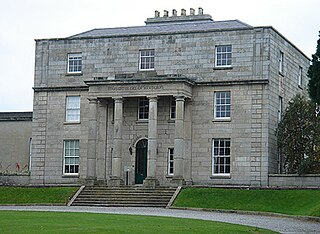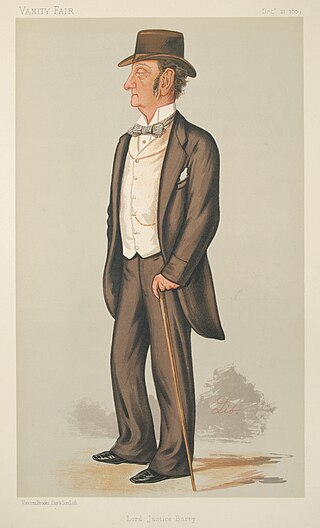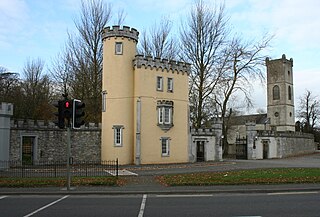Related Research Articles

Richard Moore PC was an Irish lawyer and judge.
Louis Perrin was an Irish barrister, politician and judge.
Stephen Woulfe was an Irish barrister and Whig politician. He served as Solicitor-General for Ireland in 1836 and as Attorney-General for Ireland in 1838. He was the first Roman Catholic to be appointed Chief Baron of the Irish Exchequer. He died young, due to a combination of chronic ill-health and overwork.

Charles Robert Barry QC, PC was an Irish politician and lawyer who rose to become a Lord Justice of Appeal for Ireland.
St George Daly was an Irish judge, who had a reputation for ignorance of the law. He owed his career advancement entirely to his support for the Act of Union 1801, which did nothing to enhance his standing in the legal profession.
Edward Pennefather PC, KC was an Irish barrister, Law Officer and judge of the Victorian era, who held office as Lord Chief Justice of Ireland.
Henry George Hughes was an Irish judge, politician, and third Baron of the Court of Exchequer. In 1850 he was appointed Solicitor-General for Ireland. He was elected Member of Parliament (MP) for Longford in 1856.
Philip Cecil Crampton PC was a judge, politician and Solicitor-General for Ireland. He was also a noted supporter of the cause of total abstinence from alcohol.
Sir Edward Sullivan, 1st Baronet, PC (Ire) was an Irish lawyer, and a Liberal Member of Parliament for Mallow, 1865–1870 in the House of Commons of the United Kingdom of Great Britain and Ireland. He was also Solicitor General for Ireland, 1865–1866, Attorney General for Ireland, 1868, Master of the Rolls in Ireland, 1870. Created a baronet, 29 December 1881, from 1883 to 1885 he was Lord Chancellor of Ireland.

Peter O'Brien, 1st Baron O'Brien, PC, QC, known as Sir Peter O'Brien, Bt, between 1891 and 1900, was an Irish lawyer and judge. He served as Lord Chief Justice of Ireland between 1889 and 1913. In his lifetime he was universally known as Peter the Packer, due to the skill he displayed as Attorney-General in securing verdicts by packed juries.

William Huston Dodd was an Irish politician, barrister and judge. He held the Crown office of Irish Serjeant-at-law, sat in the House of Commons of the United Kingdom as member for North Tyrone, and served as a judge of the High Court of Justice in Ireland from 1907 to 1924. There is a sympathetic account of his personality in the celebrated legal memoir The Old Munster Circuit by Maurice Healy.

Rt. Hon. Arthur Moore was an Irish lawyer, judge, and politician.
Sir John Lyndon was an Irish judge and politician of the seventeenth century. He was the first holder of the office of Third Serjeant-at-law, which was created especially for him, apparently as a "consolation prize" for not being made a High Court judge the first time he sought that office. He was also Recorder of Carrickfergus for many years, a position held by several members of the Lyndon family over the best part of a century.
Richard Jebb (1766–1834) was an Anglo-Irish judge of the nineteenth century. He was a member of a gifted family of English origin, which produced a celebrated doctor, three distinguished clerics, and a noted classical scholar.
John O'Brien was an Irish MP who represented Limerick City in the UK Parliament 1841–1852.
Thomas Burton Vandeleur was an Irish barrister and judge.
David Sherlock was an Irish Liberal Party and Home Rule League politician. He was also a successful barrister and Law Officer.
Joseph Hewitt (1754–1794) was an English-born barrister, politician and judge in late eighteenth-century Ireland.
Robert Dixon (1685-1732) was an Irish barrister, judge and politician who served very briefly as a justice of the Court of Common Pleas (Ireland).
William Johnson (1760-1845) was an Irish politician, law officer and judge of the early nineteenth century. He sat in the Irish House of Commons, served as Serjeant-at-law (Ireland) and was a justice of the Court of Common Pleas (Ireland).